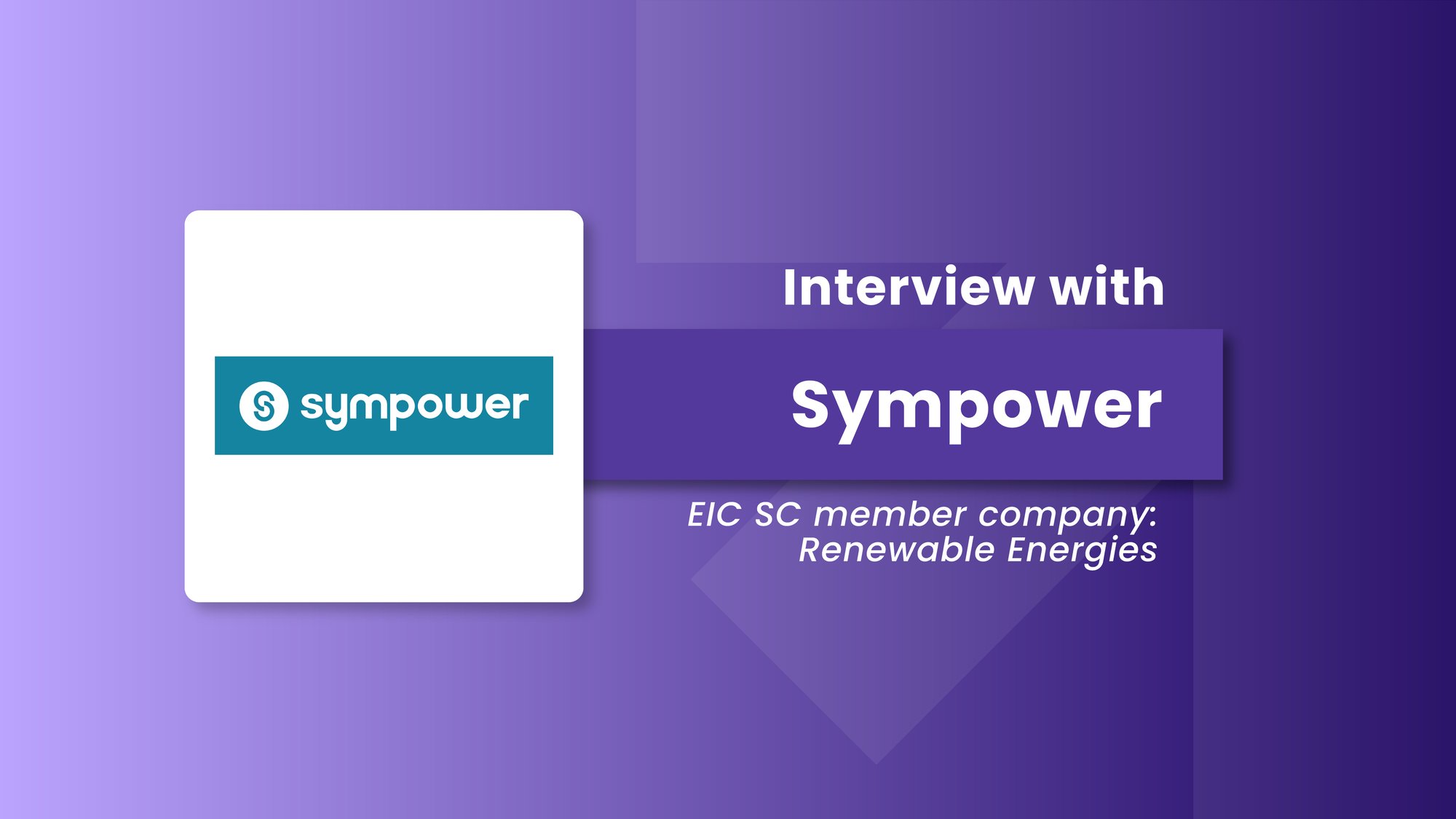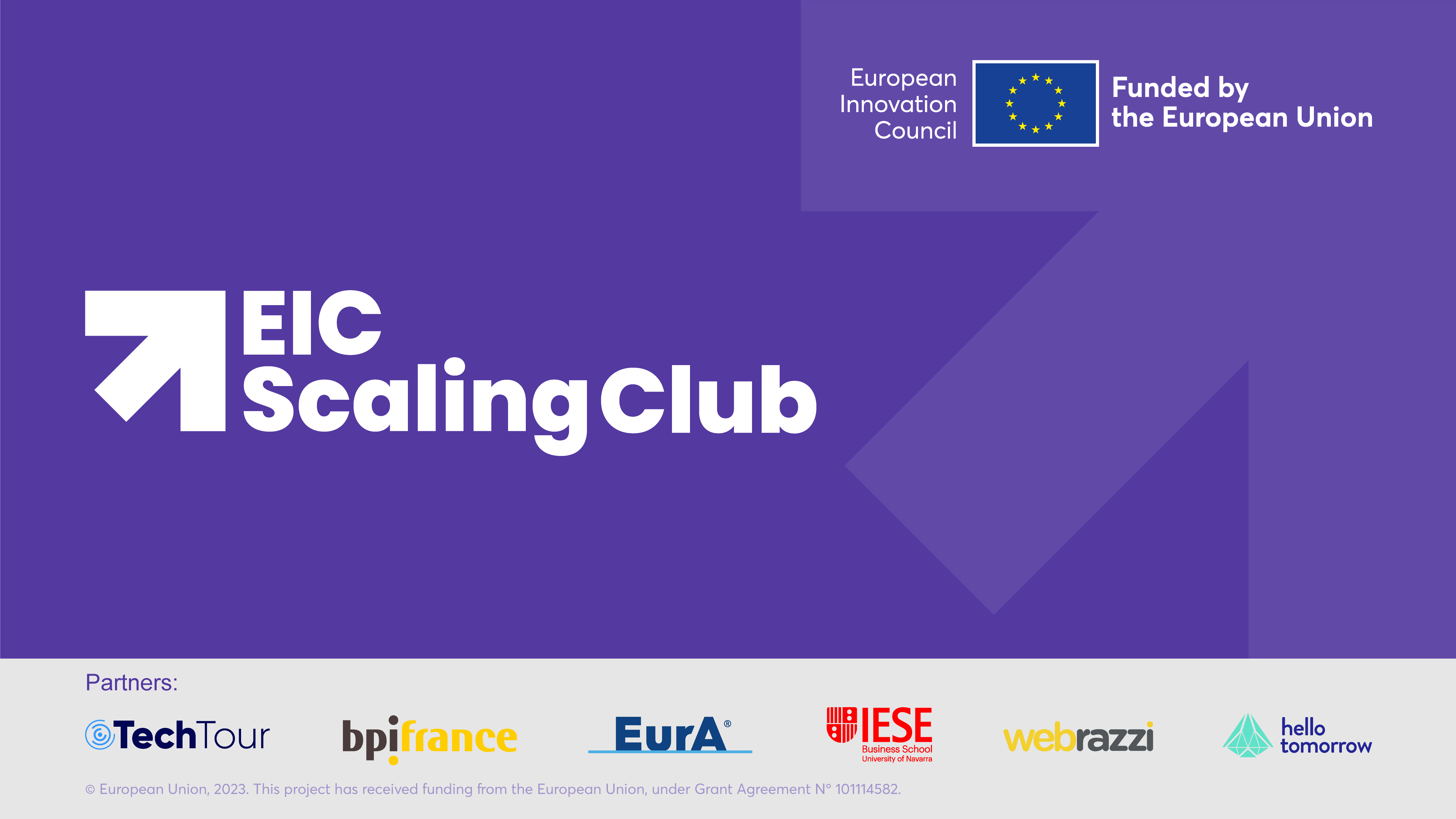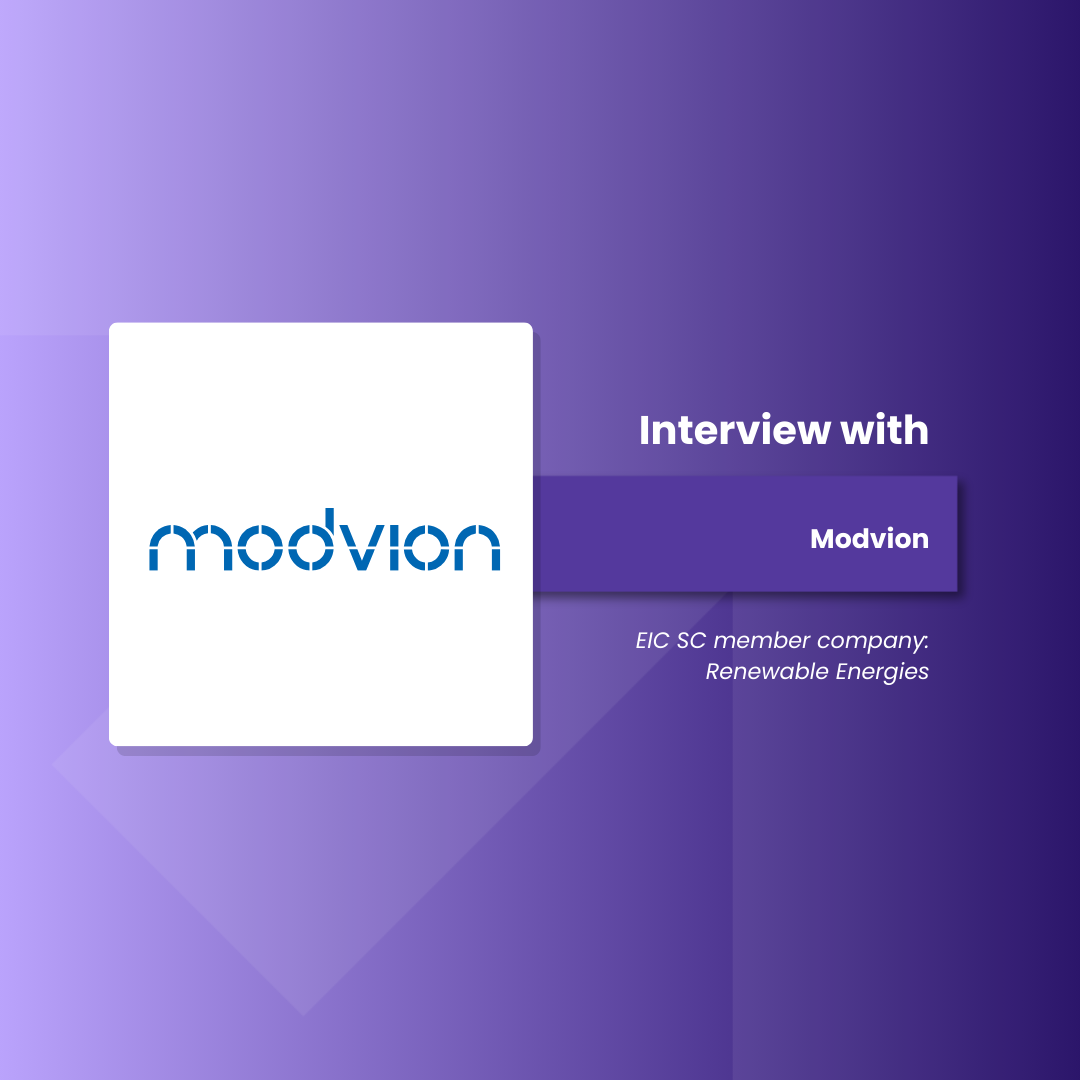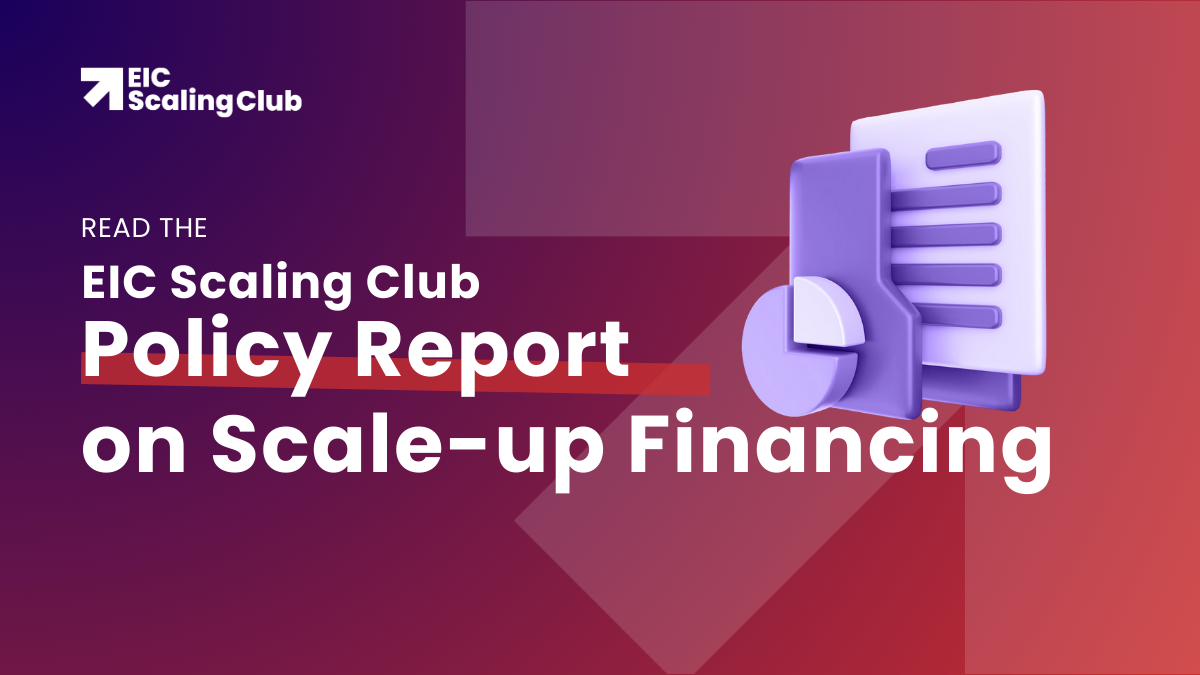Modvion: Reaching new heights with wooden wind towers
2 Feb 2026

Sympower is an energy technology company specializing in grid flexibility solutions and a member of EIC Scaling Club’s Renewable Energies group. With its main office in Amsterdam, Sympower is a truly international company active in ten European countries.
The scale-up's platform enables businesses and energy companies to be remunerated for balancing the grid and contributing to a more stable and sustainable energy consumption. By leveraging its advanced software and hardware, Sympower identifies and harnesses flexible energy resources within businesses, meaning their ability to temporarily adjust production processes without disrupting operations. This flexibility is then aggregated and monetised on energy markets to help keep in balance the supply and demand of electricity. These energy flexibility services ultimately reduce reliance on fossil fuels, promote renewable energy integration, and accelerate Europe's energy transition.
Sympower's platform is capable of responding to rapid fluctuations in the electricity grid within milliseconds, while also managing longer-term adjustments as needed. The company's founder and CEO Simon Bushell told us that while the scale-up’s primary goal is to promote renewable energy, its immediate impact is seen in the significant energy cost savings it delivers to its commercial and industrial clients.
Sympower has undergone significant leadership changes in the past year, as it continues to scale its operations. The company has recruited experienced executives with a track record of scaling tech startups, including new Chief Commercial, Technology, Financial, and Organisation and Strategy Officers. This influx of leadership talent aims to guide Sympower through its current growth phase, building upon the contributions of previous leaders who have played crucial roles in the company's development.
Sympower’s founder, Simon Bushell, studied Natural Sciences at the University of Cambridge but soon realized that he wasn’t ready to work in a science lab. He was drawn to the challenge of climate change and the critical role of grid stability in a renewable-dominated energy system. He then moved on to complete a Masters’ degree in Sustainable Energy at Imperial College London. Simon says:
“I decided that for me, climate change is really the biggest and most important problem that we have. It's an overarching problem. There are a lot of other critical problems to solve in the world, but if you don't solve climate change, there's not much point in solving the other problems. So I wanted to do something about it.”
Simon’s background in science and sustainable energy, combined with leadership experience from organizing large-scale events, provided him with the foundation to co-found Sympower in 2015 together with his fellow student Georg Rute, who left the company two years later.
Due to Georg being Estonian, Sympower was first founded in Estonia, and that same year won the ClimateLaunchpad competition in the country. Simon tells us: “We really have our roots in Estonia – that's where we started the company, and we still have our software engineering team based there.” Finland became the startup’s first active country in 2016. The same year, Sympower moved its main office to Amsterdam after being selected to join the Rockstart Smart Energy Accelerator program.
While Sympower’s main office is currently in the Netherlands, the company does not associate itself with one country. It has a strong European presence, with offices in Sweden, Finland, Norway, Greece, and Estonia, and employees working remotely from 19 different countries. The company's team of 200 people is composed of 48 nationalities, reflecting its truly international character.
Sympower currently faces the challenge of maintaining a balance between rapid growth and efficient scaling. This involves implementing processes, designing teams effectively, and adapting the software platform to support expansion while ensuring ongoing operations. Simon explains:
“There’s a popular analogy that building a startup is like jumping off a cliff and figuring out how to build a plane on your way down. I feel like we've now built that plane, but we're trying to turn it into a rocket ship, and doing that while we're still flying. It’s really hard to get that balance between growing and scaling and building the rocket ship, keeping it in the air. So there’s always a constant balance to be found.”
Another challenge is associated with the company's revenue being influenced by market prices, making it less predictable compared to traditional service-based businesses. This requires careful planning and flexibility from investors.
Expanding into new countries is another long-term challenge. Sympower currently operates in five countries – Sweden, Finland, Norway, the Netherlands, and Greece. It is actually the largest independent flexibility services provider in the Nordics and in Greece. However, Simon reveals that some of their other expansion efforts have failed due to regulatory hurdles. The company must carefully evaluate market conditions and regulatory frameworks before entering new countries to minimize risks.
Sympower has so far secured over €30 million in funding, demonstrating strong investor confidence in its mission to revolutionize the energy grid. This investment has fueled the company's growth and expansion into new markets. Simon points out:
“Raising money is not a goal in itself – it's a means to an end. However, it shows that other people also believe in what you're doing and are willing to invest a serious amount of money in it. That's a nice validation point.”
In addition to successfully established operations in five countries, Sympower boasts a signed capacity of nearly two gigawatts across its commercial and industrial projects. While Sympower has primarily focused on demand-side management, it is now venturing into the battery storage and renewable energy sectors, further solidifying its position as a leader in grid flexibility solutions.
In this regard, the EIC Scaling Club can be a strong support, and Simon points out: “As I mentioned, one of our key challenges is strategic expansion. We believe the EIC Scaling Club can provide valuable insights and support to help us optimize our expansion strategy and access new markets more effectively."
"The EIC Scaling Club has provided us with access to a remarkable network of European professionals who have already benefited our business and whom we probably wouldn’t have met otherwise. We're hoping that the Club can continue to support us as we expand our product offerings,” Simon adds.

The EIC Scaling Club is a curated community where 120+ European deep tech scale-ups with the potential to build world-class businesses and solve major global challenges come together with investors, corporate innovators and other industry stakeholders to spur growth.
The top 120+ European deep tech companies will be carefully selected from a pool of high-growth scale-ups that have benefitted from EIC financial schemes, other European and national innovation programmes, and beyond.
The EIC Scaling Club is an EIC-funded initiative run in partnership by Tech Tour, Bpifrance (EuroQuity), Hello Tomorrow, Tech.eu (Webrazzi), EurA and IESE Business School.
Subscribe to our newsletter here to stay up-to-date!

2 Feb 2026

23 Jan 2026

13 Jan 2026
.png)
7 Jan 2026